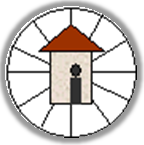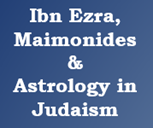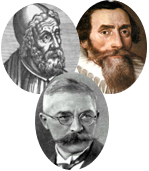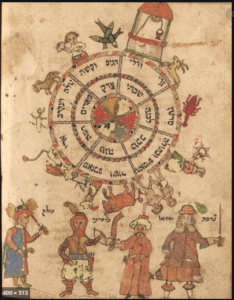 Are Trines Better Than Squares ?!
Are Trines Better Than Squares ?!
Basic astrology teaches that the Trine aspects are ‘good’ and the Square aspects are ‘bad’. Also described as: Harmonious vs, Disharmonious, Hard vs. Soft, Easy vs. Difficult. Experience shows that this statement cannot be applied universally in all cases. The planets that are involved in the aspect make all the difference – ‘good’ & ‘bad’ is ultimately determined by the essential nature of the planets themselves. This becomes evident in the case of aspects with the malefics. This presentation teaches how to distinguish between the different situations and determine the outcome. (recorded webinar, mp4)![]()
 The Houses We Live In – Quadrant or Equal ?
The Houses We Live In – Quadrant or Equal ?
How to Live in More than One House (system)
Comparing Quadrant and non-Quadrant House system. Explaining the astronomy behind it. In chart reading: How to integrate Quadrant and Equal-Houses, along with change of House-Rulers, to get a a more accurate reading. (recorded webinar, mp4)![]()
 ASC & MC – The “I” and the “Other” in the Uranian System: Where is the “I” in the Chart ?!
ASC & MC – The “I” and the “Other” in the Uranian System: Where is the “I” in the Chart ?!
In Traditional Astrology, the ASC and its Ruling Planet signify the “I” – the Immediate Native – Body & Mind & Persona. The 7th House and its Ruler signify “the Other” or “Others”. The MC and its Ruler signify elevation in life, rank achievements, goals, superiors, authority, and the Mother. In the Uranian System, the MC carries Personal Attributes of the “I”, while the ASC is associated with “Others”. In this lecture we compare and resolve this seeming contradiction. (recorded webinar, mp4)![]()
 Astrology has Never Been Too Far from the Jews
Astrology has Never Been Too Far from the Jews
They both have the same Birth Place: UR אוּר כַּשְׂדִים , and about the same beginning (2nd millennium BCE). It was later, in Babylonia, where they met again, as astrology was maturing into the way we know it now. The Jewish people were always involved with the cultural milieu around them. In Babylonia astrology pervaded the educated circles and the Jews were not immune to its allure. Astrology did not begin with the Jews, but of all the great Monotheistic Religions, Judaism embraced and preserved it, in ways – some visible and some occult. Yet, astrology presents profound philosophical questions and glaring religious contradictions that had to be resolved. This tension is represented dramatically in the opposed positions of Ibn Ezra & Maimonides.
(recorded webinar, mp4)![]()
![]()
 Ptolemy, Kepler, and Witte’s Uranian System – Strange Bedfellows -or- Great Minds Think Alike
Ptolemy, Kepler, and Witte’s Uranian System – Strange Bedfellows -or- Great Minds Think Alike
These three represent Important Historical Milestones, as well as Insights into what we do. While centuries & worlds apart, they share a Similar Philosophy & Legacy, which Goes to the Core of the Celestial Dynamics in the Chart. All three demand a scientific approach and reason as the foundation. Ptolemy refers to the Natural Cycles, Kepler adheres to mathematics and geometry, and rejects many traditional doctrines, and Witte takes it into the 20th Century. The Continuity, Influence, and Similarity that run through all three is striking. Here we compare their Doctrines – and their application in modern practice. (recorded webinar, mp4)![]()
![]()
 Fate & Free Will –
Fate & Free Will –
In Astrology and in Jewish Thought
The question of Fate vs. Free Will has preoccupied humanity since antiquity, and the premise of Astrology – the Natal Chart and its Predictive Power – makes it a universal burning question. Throughout history the questions that are raised by astrology received attention from great thinkers, philosophers, and theologians, most of whom argued against it, on the basis of religious and philosophical doctrines. In the Jewish tradition the staunch opposition to astrology is represented by Maimonides (Rabbi Moshe Ben Maimon) (1138-1204) – a renowned philosopher and major luminary in Jewish studies. At the other end of the Jewish spectrum we find Rabbi Abraham Ibn Ezra (1089-1164) – a Biblical commentator, scholar, and historically renowned astrologer, who wrote a large compendium of astrological texts. Both of them addressed the question of Fate and Free Will from two very different perspectives. This talk surveys the Jewish attitude to Fate and Free Will, both pro and con, as it begins to appear early in the Talmud, and continue to the culmination, or the “show down”, when astrology came into the cross-fire between Maimonides and Ibn Ezra. We also look for this question in the Astrology of the Hellenistic Period. These historical debates are paralleled in modern times, even outside the realm of religion, as sciences, such as theoretical physics, biology, neurology, etc. also raise questions of pre-determination. (recorded webinar, mp4)![]()
![]()
